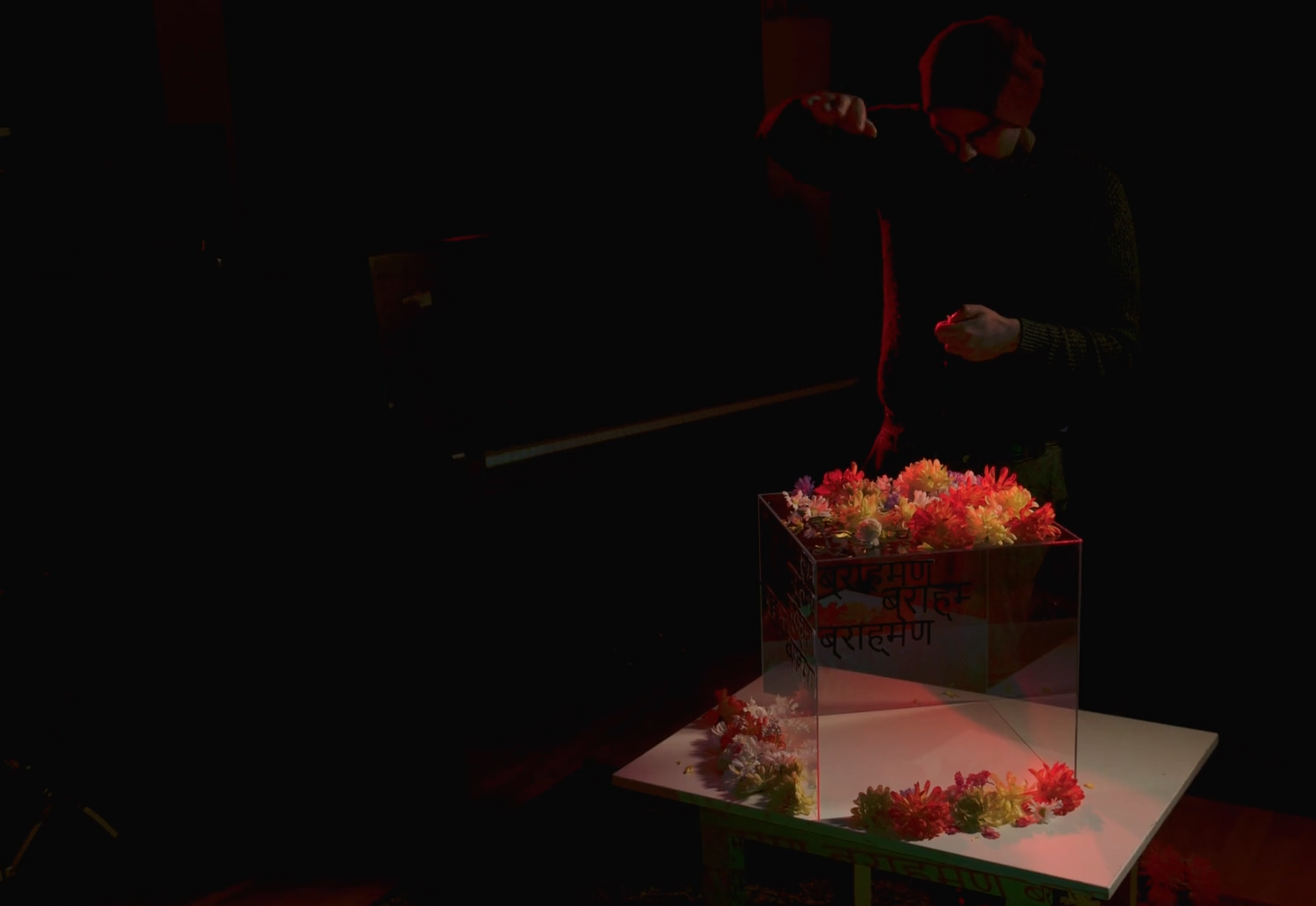The Glasgow-based musician who has supported the likes of folk star Raghu Dixit talks about his new album ‘A Sacred Bore’

Glasgow-based artist Kapil Seshasayee. Photo: Courtesy of Tag Publicity
Earlier this year in a church-turned-venue in Glasgow, Scotland, art rock artist Kapil Seshasayee was providing a very different mood to people who had probably shown up to see Bengaluru folk act The Raghu Dixit Project. Through his music, Seshasayee was offering a critique to India’s caste system, via his Carnatic-influenced guitar work and abstract sonic constructions.
His latest album ”“ A Sacred Bore (out via U.K.’s Loner Noise) ”“ intends to push further in that narrative. Through noisy clips and dipping in and out of traditional rock and drum machine-aided rawness, A Sacred Bore is tied together by Seshasayee’s wistful, anguished voice. “I seek to remove the taboo of calling out one’s own caste privilege as if it nullifies any notion of intersectionality. A lot of upper-caste Indians in diaspora struggle with admitting to their own caste privilege as they fear it would imply they are immune to other forms of prejudice such as racism,” he says about the aim of the 10-track album. In it, there’s a special track dedicated to Sikh and Dalit activist Bant Singh, who has previously been lauded by U.K.-Indian collaborative project Word Sound Power.
Releasing music since 2013, Seshasayee probably takes some ideas of caste privilege from his own upbringing, although he does mention an incident involving derogatory caste slurs at his workplace in Glasgow between diaspora Indians. He grew up in a household of illustrious Indian music, just like his cousins, the Raagam Sisters Sivaranjani and Nalinakanthi Venkataraman. The guitarist, composer and vocalist says, “I feared that learning to compose Carnatic-style music mostly by transcribing compositions by ear wouldn’t sit too well with my relatives with proper classical training but they’ve been really supportive of the direction I’ve gone in.”
With a tour in Europe underway to promote A Sacred Bore, this is only one of three albums the artist is plotting as part of a “Desi-Futurism trilogy.” He says about expanding his scope to write with his band, “I am still in the process of composing the music for both records. The focus of the second record (likely to be released in Spring 2020) will be writing music only for the voices of my current live-band setup: classical flutist & composer Diljeet Bhachu, session tabla player Sodhi Deerhe and classical vocalist Ankna Arockiam. It’s a new challenge writing without the crutch of adding as many layers as you’d like with [digital audio workstations like] Max or Ableton Live.”
Find Kapil Seshasayee tour dates here.
Usha Uthup, Kailash Kher and Kailasa, Anirudh Varma Collective and Kutle Khan injected a new…
The songwriter and performer broke through with early Sixties hits like "Breaking Up Is Hard…
The hip-hop star has extended his 'global mystery mandate' to the upcoming New Delhi show,…
In the eight-minute animated short soundtracked to “The Mountain,” “The Moon Cave,” and “The Sad…
Blackpink is trading the neon pink for a sci-fi aesthetic that catapults the bar for…
The group also shared a dynamic music video for their anthemic song "Go"